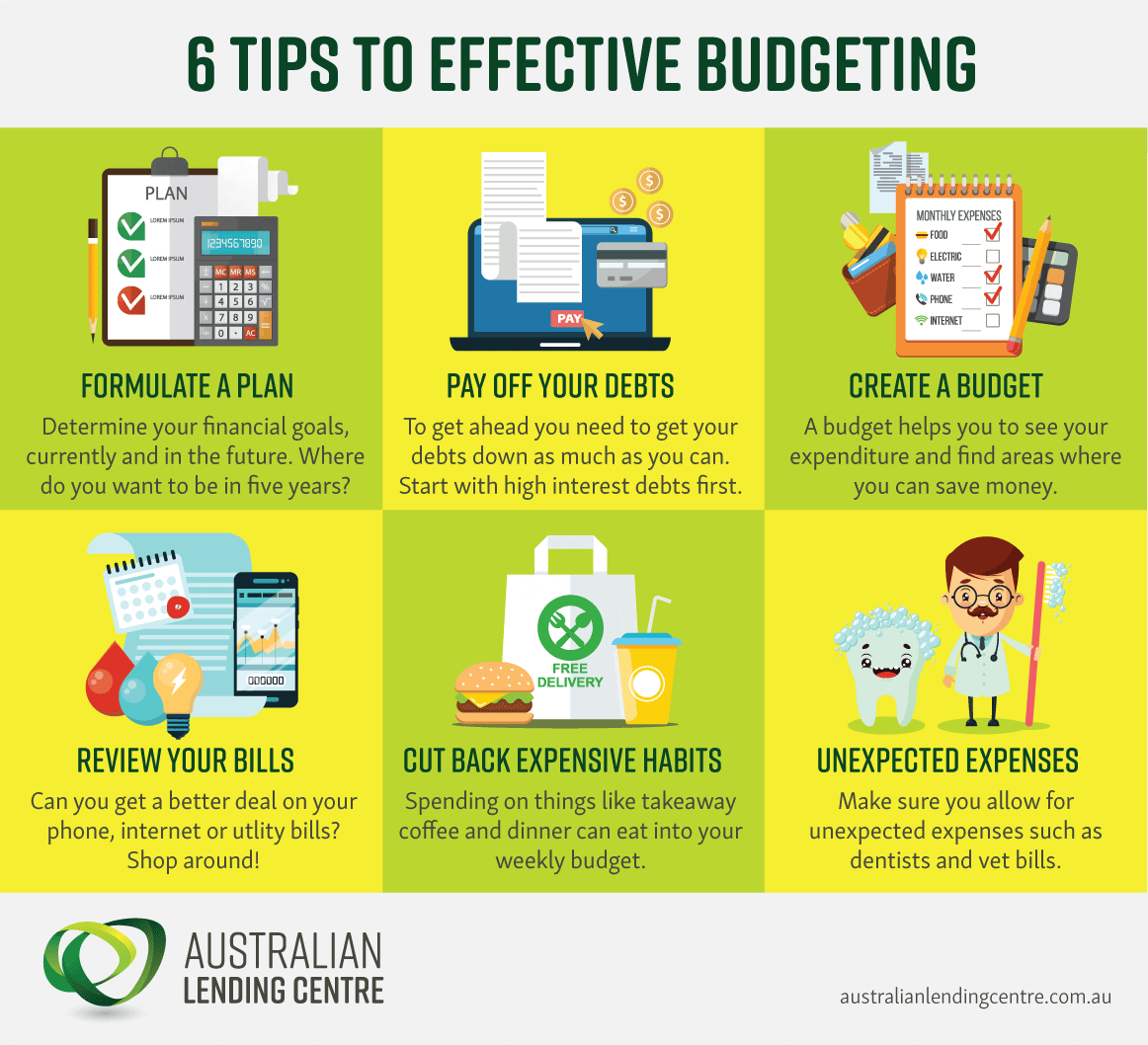Track your expenses and set realistic goals. Create a budget that aligns with your financial priorities.
Effective budgeting is crucial for financial stability and success. Understanding your spending habits helps you make informed decisions and avoid unnecessary expenses. Start by tracking every expense, no matter how small. Use tools like apps or spreadsheets to categorize and review your spending patterns.
Setting realistic financial goals is essential. These should be achievable and aligned with your income and long-term aspirations. Regularly review and adjust your budget to stay on track. Prioritize savings and emergency funds to cushion unexpected expenses. Consistency and discipline in budgeting lead to better financial health and peace of mind.

Credit: www.linkedin.com
Setting Financial Goals
Setting financial goals is crucial for effective budgeting. It provides direction and helps you manage your money wisely. By clearly defining your financial objectives, you can create a roadmap to achieve them. Below are tips for setting both short-term and long-term financial goals.
Short-term Goals
Short-term goals are objectives you aim to achieve within a year. These goals are essential for immediate financial needs and priorities. Here are some tips for setting short-term financial goals:
- Emergency Fund: Save at least $500 for unexpected expenses.
- Debt Repayment: Pay off small debts like credit cards.
- Savings for Purchases: Save for a new gadget or a short trip.
Short-term goals offer quick wins and build your confidence in managing money.
Long-term Goals
Long-term goals are objectives you aim to achieve in more than a year. These goals require more planning and discipline. Here are some tips for setting long-term financial goals:
- Retirement Savings: Contribute to a retirement account regularly.
- Home Purchase: Save for a down payment on a house.
- Education Fund: Build a fund for your children’s education.
Long-term goals help you secure your financial future and provide stability.

Credit: www.colorado.edu
Tracking Income And Expenses
Effective budgeting is crucial for financial stability. Tracking income and expenses helps manage money better. Understanding where your money goes can help you make informed decisions. Let’s dive into some tips on tracking income and expenses.
Income Sources
Identifying your income sources is the first step. List all your income streams. This could include:
- Salary or wages from your job
- Freelance work or side gigs
- Investment returns like dividends
- Rental income from properties
- Government benefits or pensions
Track these incomes monthly. Use a spreadsheet or budgeting app. This will help you see your total earnings clearly.
Expense Categories
Next, categorize your expenses. This will show you where your money is going. Common expense categories include:
| Category | Examples |
|---|---|
| Housing | Rent, mortgage, utilities |
| Food | Groceries, dining out |
| Transportation | Gas, public transit, car maintenance |
| Healthcare | Insurance, medications |
| Entertainment | Movies, hobbies, subscriptions |
Track your spending in each category. This will help you identify areas to cut back. Use budgeting tools to keep it organized.
Regular tracking of income and expenses leads to better financial health. It helps you stay on top of your budget and avoid overspending.
Creating A Budget Plan
Creating a budget plan helps you manage your money better. It ensures you spend wisely and save for the future. Let’s explore key steps for making a solid budget.
Monthly Budget
A monthly budget is crucial for tracking expenses. Start by listing your income sources. Then, list all your monthly expenses.
| Income | Expenses |
|---|---|
| Salary | Rent |
| Freelance | Groceries |
| Investments | Utilities |
Subtract expenses from income to see your savings. Adjust your spending if you see a deficit. A monthly budget helps control day-to-day finances.
Annual Budget
An annual budget gives a broader view of your finances. Start by listing your yearly income. Then, list annual expenses like insurance and taxes.
- Yearly Income
- Salary
- Bonuses
- Investments
- Annual Expenses
- Insurance
- Taxes
- Vacation
Review your annual budget to plan big expenses. It helps you save for emergencies and future goals. Regularly update your budget to stay on track.

Prioritizing Expenses
Learning to prioritize expenses is crucial for effective budgeting. This involves understanding the difference between essential and non-essential costs. It also includes recognizing which expenses are fixed and which are variable. By doing this, you can make better financial decisions and manage your money wisely.
Needs Vs. Wants
Understanding the difference between needs and wants is essential. Needs are things you must have to live. These include food, shelter, and healthcare. Wants are things that you desire but can live without. Examples are dining out, vacations, and luxury items.
Here is a simple table to help you categorize:
| Needs | Wants |
|---|---|
| Groceries | Restaurant meals |
| Rent/Mortgage | Designer clothes |
| Utilities | Gym membership |
By focusing on needs first, you ensure that your essential expenses are covered. Then, you can allocate the remaining budget to wants.
Fixed Vs. Variable Costs
Identifying fixed costs and variable costs can help you manage your budget more effectively. Fixed costs stay the same each month. These include rent, insurance, and subscriptions. Variable costs can change from month to month. Examples include groceries, fuel, and entertainment.
Here is a list to differentiate them:
- Fixed Costs:
- Rent/Mortgage
- Insurance
- Subscriptions
- Variable Costs:
- Groceries
- Fuel
- Entertainment
By knowing your fixed and variable costs, you can plan your budget more accurately. This helps in avoiding surprises and managing your money better.
Saving Strategies
Effective budgeting often involves smart saving strategies. Saving helps you prepare for unexpected expenses and future goals. Here are some key strategies to get you started.
Emergency Fund
An emergency fund is essential for financial security. This fund helps cover unexpected costs like medical bills or car repairs.
To start building your emergency fund, aim to save at least $1,000 initially. Gradually increase this to cover three to six months of living expenses.
- Set a monthly saving goal.
- Automate transfers to your emergency fund.
- Keep this fund separate from other savings.
Savings Accounts
Choosing the right savings account can help maximize your savings. Look for accounts with high interest rates and low fees.
Consider these types of savings accounts:
| Account Type | Benefits |
|---|---|
| High-Yield Savings | Higher interest rates than regular savings accounts. |
| Online Savings | Often offers better rates and lower fees. |
| Money Market | Higher rates, limited transactions, and check-writing abilities. |
To optimize your savings, compare different account options. Choose the one that best fits your needs and goals.
Debt Management
Managing debt is crucial for effective budgeting. Understanding debt management can help you reduce financial stress. This section will guide you through debt repayment plans and consolidation options. These tips will help you regain financial control.
Debt Repayment Plans
Debt repayment plans help you pay off debts systematically. Here are some popular methods:
- Snowball Method: Pay off the smallest debts first. This builds momentum.
- Avalanche Method: Tackle debts with the highest interest rates first. Save on interest.
- Debt Management Plan (DMP): Work with a credit counseling agency. They negotiate with creditors on your behalf.
These methods require consistent payments. Stay disciplined and track your progress.
Consolidation Options
Debt consolidation combines multiple debts into one. This simplifies payments and can lower interest rates. Here are some options:
- Personal Loan: Take a loan to pay off multiple debts. One payment, lower interest.
- Balance Transfer Credit Card: Transfer all balances to one card. Look for low or 0% introductory rates.
- Home Equity Loan: Use home equity to consolidate debt. Lower rates, but your home is collateral.
Choose the option that suits your financial situation best. Evaluate interest rates and terms carefully. A good consolidation plan can ease your debt burden.
Investing Wisely
Investing wisely is key to effective budgeting. It helps grow your savings and secure your future. This section will guide you on how to invest smartly.
Investment Types
There are various types of investments. Each has its own benefits and risks. Here are some common investment types:
| Investment Type | Description |
|---|---|
| Stocks | Buying shares in companies. High risk but potential high returns. |
| Bonds | Loans to governments or companies. Lower risk and steady returns. |
| Mutual Funds | Pooled money from many investors. Diversified and managed by professionals. |
| Real Estate | Investing in property. Good for long-term growth. |
Risk Management
Managing risk is crucial in investing. It helps protect your money. Here are some tips for managing risk:
- Diversify: Spread your money across different investments.
- Research: Learn about each investment before putting in money.
- Set Limits: Decide how much risk you can handle.
- Stay Updated: Keep track of market trends and news.
Effective risk management ensures your investments remain safe. It helps you avoid big losses.

Credit: www.australianlendingcentre.com.au
Reviewing And Adjusting
Effective budgeting involves more than just planning. It’s vital to regularly review and adjust your budget. This ensures you stay on track and meet your financial goals.
Regular Reviews
Conduct regular reviews of your budget. Set a specific time each month to review your finances. This helps you understand where your money is going. It also helps you identify any unexpected expenses.
- Check your income and expenses.
- Compare your actual spending with your planned budget.
- Identify categories where you overspend.
- Look for areas where you can save more.
Use a spreadsheet or budgeting app for detailed tracking. This makes it easier to see trends over time.
Making Adjustments
After your review, it’s time to make adjustments. Adjusting your budget helps you stay aligned with your goals.
- Reallocate funds to cover unexpected expenses.
- Increase your savings in categories where you underspend.
- Reduce spending in areas where you overspend.
For example, if you overspend on dining out, reduce that budget. Redirect those funds to savings or paying off debt.
Effective budgeting is an ongoing process. Regular reviews and adjustments keep you on track. They ensure your budget works for you.
Frequently Asked Questions
What Is The 50 30 20 Rule Of Budgeting?
The 50 30 20 rule of budgeting allocates 50% for needs, 30% for wants, and 20% for savings and debt repayment.
What Are 5 Keys Steps To Better Budgeting?
1. Track all your expenses regularly. 2. Set clear financial goals. 3. Create a realistic budget plan. 4. Prioritize essential spending. 5. Adjust and review your budget monthly.
What Are The 7 Steps In Good Budgeting?
The 7 steps in good budgeting are: Set financial goals, track income, list expenses, categorize expenses, prioritize spending, create a budget plan, and monitor and adjust the budget regularly.
What Are Three Tips For Successful Budgeting?
1. Track all expenses to identify spending habits. 2. Set realistic financial goals for better planning. 3. Use budgeting tools or apps to stay organized.
Conclusion
Mastering budgeting can lead to financial freedom. Apply these tips to manage your money effectively. Stay consistent and track your progress. Remember, a well-planned budget helps you achieve your financial goals. Make smart decisions and enjoy a stress-free financial future.
Happy budgeting!

